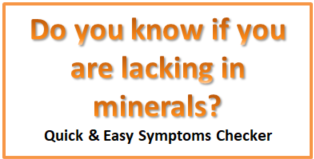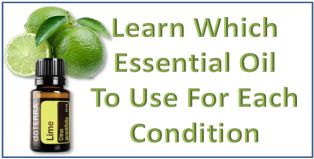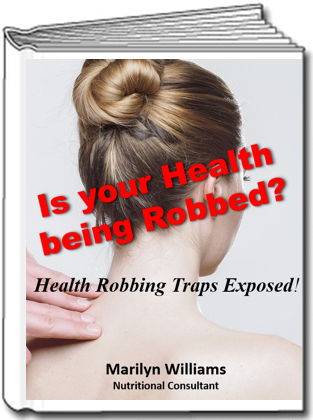Saturated vs Trans Fat … is one good and one bad? Should we avoid one and eat the other? Or are they both bad?
Over the years we’ve been led on a merry dance with the information coming out concerning our diet. There is so much controversy between those addressing the health industry that it’s really very confusing. Why is this?
For years we have been advised by the “health authorities” that if we want to be healthy and lose weight, we must steer clear of fats found in foods such as butter, meat, coconuts and even chocolate! If we do a search online right now we find an enormous amount of “evidence” that these foods are doing us harm. Instead we should eat margarine and lean meats… and avoid coconuts and chocolate altogether.
I’d like to take a closer look at this “evidence” and let’s see.
Saturated vs Trans Fats
Saturated Fat

For a scientific explanation on saturated fat go to Wikipedia as I’m not covering that in my article. An easy way to understand is that it’s solid at room temperature. Think butter. ..think fat on meat… think hardened coconut oil.
Many health authorities believe that when you eat foods containing saturated fat, it raises the cholesterol levels in your blood, and this in turn increases your risk of having a stroke or getting heart disease. But is this really so?
While in the more recent past we’ve had it drummed into us that eating saturated fat is bad for us, our ancestors lived their entire lives consuming it. Did they all put on weight or die of heart attacks, strokes and cancer? The reality is that all this is an epidemic of our modern day. How could this be?
You only have to go back about 100 years to find that heart attacks were virtually unknown, and very few were obese. All these conditions have come about in recent times, which means that there is something being done to cause this.
There are tribes living on this earth who consume up to 75% of their diet out of saturated fat, and are living long healthy lives. Even human breast milk contains 54% saturated fat. So is this telling us something?
Saturated vs Trans Fats
Trans Fat – the Devil exposed!
For a scientific explanation on trans fat go to Wikipedia. Trans fats is the same as partially hydrogenated oils.
The kind of trans fats we are concerned with are those created during a process when hydrogen is added to a liquid vegetable oil to make it into a solid form. Think margarine. Margarine is made from a plant oil (liquid) and processed to a solid form.
Partially hydrogenated oils are greatly used within the food industry because:
- It’s cheap
- Easy to use
- Lasts a long time
- Good tasting
- Can be reused over and over
So with foods tasting better and lasting longer, you can see why it’s so popular.
 Typically where these oils are used are:
Typically where these oils are used are:
- Restaurants
- Fast Food outlets
- Makers of packaged and processed foods
- In home cooking
Type of foods that generally use these oils:
- Virtually everything!
- Deep fried foods such as fish and chips, chicken etc
- Donuts
- Cookies, Cakes, Pizza bases… the list goes on and on
Problems with Trans Fats:
- Your body can’t get rid of it
- Your body has a really hard time moving it through
Health Professionals have known for years now how trans fats clog the arteries and potentially result in heart attacks and strokes. A lot of us are quite familiar now with the term trans fats and would by choice opt for another way. But can we?
There is a strong move abroad to stop the use of trans fats in commercial fryers, and many have changed the type of oil they use now. This sounds good doesn’t it? But is it? The reason they made partially hydrogenated oils in the first place was because the oils, without being modified, give off an abundance of toxic by-products. But now, as they are gradually moving away from using trans fats, they have to replace it with something… and that something is to go back to using vegetable oils. This is a very scary thought!
All these oils, including canola, have multiple problems. To start with, some have been genetically modified ( GMO Foods to Avoid at all Costs ), then there’s the extraction processes using chemicals and solvents. Finally, because they are unstable, they are not suitable to be heated as they give off dangerous oxidation products.
xxx
Did you know:
that the oils being promoted as the most healthy for us,
are some of the most chemically altered foods contained within our diets?
Vegetable oils, including canola,
are some of the most harmful foods you can eat.
Saturated vs Trans Fats
xxx
Let’s end the confusion between Saturated Fats and Trans Fats
![]()
Most people are confused and put both saturated fat and trans fat into the same basket. In their mind, they both need to be avoided. Is this true?
As you can see from the above descriptions, they are both a totally different food source. Trans fats are man-made. Nature provides us with saturated fats, such as… fat on meats; in dairy; coconuts etc.
It’s quite obvious that we need to avoid the trans fats wherever possible. Opt for healthier food choices by choosing not to eat anything that potentially would be cooked using partially hydrogenated oils.
But eating saturated fat and protein do not make you unhealthy or fat, in fact, we need to increase the amount we eat. We need a variety of fats in foods such as:
- Grass-fed meats
- Raw dairy (when you can get it)
- Organic pastured egg yolks (eat whole eggs)
- Raw grass-fed organic butter
- Avocados
- Coconuts and Coconut Oils
- Raw nuts and seeds (such as macadamia, almonds, pecans, brazil etc)
- Organic nut oils – do not heat.
All these foods contain a variety of good fats and we should try to incorporate as many as possible into our diet. In Australia, it’s against the law for dairy farmers to provide raw milk to the public. This is a very sad state of affairs. You need to be in the position of owning your own cow or goat to enjoy the many benefits provided from such milk.
When using oils:
HOT:
When cooking, you are best to use only coconut oil. Most all other oils spoil under heat and become toxic.
COLD:
Use Olive Oil for salads and veggies but never heat.
The truth is that all foods that contain fat, contain a little of them all (except trans fat of-course!). It’s not a matter of eating one food to get saturated fat, and another food to receive polyunsaturated fat! They all contain a percentage of each fat. Even red meat which contains about 7% fat, 5% of it is unsaturated fat! Only 2% is saturated. In fact, the only food group that contains more saturated than unsaturated is dairy.
Don’t be frightened off by saturated or unsaturated, as both are good. Remember… it’s only the trans fat we need to avoid. Like GMO, avoid it at all costs, wherever possible. If you ask at a food outlet if they use trans fats, they may reply “Oh no! We only use canola!” Or something else similar. This is ‘out of the frying pan and into the fire! ‘
Please remember that no vegetable oil is good for you. Further heating destroys it.
Nina Teicholz, an investigative journalist and writer of The Big Fat Surprise: Why Butter, Meat and Cheese Belong in a Healthy Diet said that in a test it was discovered that within a single piece of chicken, fried in vegetable oils, the chicken contained more than 100 dangerous oxidation products! That’s a little like saying “You want fries with that?” You get the chicken and 100 dangerous oxidation products to boot!
The Fats/Oils I Use
![]()

Butter
I never hesitate to use grass-fed, organic butter. I love the taste. If I use it for cooking I use it as is, but for table use I beat in some olive oil, or a good nut oil to keep it spreadable.
Coconut Oil
My main oil used for cooking is coconut. I’m the coconut kid. Love it! Once again, I only buy the best. Must be organic and cold-pressed… and not refined. Coconut oil is the only oil that it’s safe to re-use when frying.
Olive Oil
You must purchase a high quality Olive Oil. I love a light tasting Olive Oil that’s cold pressed and contains the healthy benefits it’s renowned for. Always buy oil in a bottle and resist buying any oil packaged in plastic. The oil draws into itself certain ingredients that the plastic is made of. That’s the last thing we need! In fact, that goes for anything oily… peanut butter for example.
Saturated vs Trans Fat… have I helped you to understand the difference? Can you now see why it’s trans fats you need to avoid and the importance of making sure you receive saturated fat in your diet? Let me know how you are managing to avoid those nasty trans fats… what measures do you take?
![]()


 Marilyn Williams
Marilyn Williams



GREAT post! I dated a guy who worked in the ‘oil’ business years ago… He once told me about canola oil and how it was the biggest food scam on the market. It was marketed as a ‘healthy’ oil, when in fact it’s not.
I didn’t know that olive oil was not good to cook with either! I use a lot of both coconut and olive, so thanks for the tip. I won’t use it anymore to saute with. Thank you!
Hi Jackie… Thanks for sharing this info, I really appreciate it. It’s really interesting what you said re canola oil… to hear it directly from someone working in the industry means a lot. It bothers me so much that people are being so easily duped into believing it’s good for them when the opposite is really true.
Olive Oil is OK to cook with on the condition you keep the heat right down low. Personally, I’d prefer to use coconut so I can be sure.
Marilyn
i have never understood the problems with trans fat before but this post has really helped me understand. thanks for sharing this vital info. Mark
Oh I’m so glad the info I wrote has been helpful to you. That’s terrific! I hope you take the time to read the other pages/posts as there is a lot more there. Marilyn
hi marilyn..i read your article and i found that its informative..i want to be a health person, but right now i just focus on exercises..you know jogging, gym..but i don’t control my diet. i don’t even know what is saturated or trans fat..i need this information to plan my diet..and thanks to you,
-adam
Hi Adam… I’m so glad my article has helped you to plan. You are starting off good and just keep on adding little changes to your lifestyle… this could be the beginning of your plan. Knowing the difference between the fats is very important and a great place to start.
hi marilyn..i read your article and i found that its informative..i want to be a health person, but right now i just focus on exercises..you know jogging, gym..but i don’t control my diet. i don’t even know what is saturated or trans fat..i need this information to plan my diet..and thanks to you,
-adam
Hi Adam… I’m so glad my article has helped you to plan. You are starting off good and just keep on adding little changes to your lifestyle… this could be the beginning of your plan. Knowing the difference between the fats is very important and a great place to start.
Hey there, You have done a great job. I’ll personally recommend it to my friends.
I am sure they’ll be benefited from this website just as I have.
That’s really great to hear Tania! Thanks for letting me know.
Thanks for all this info! I love olive oil and always assumed it is healthy. I had no idea that I had to get it cold pressed and buy it in a glass bottle and not plastic. I have always bought it in the plastic bottle because those are always cheaper options. I don’t even know what cold pressed means,can you explain?
I will certainly pay attention next time I am in the shop.
Hi Lynne… thanks for your comment. I’m happy you are in to olive oil, it’s a great move. Plastic is many cases, where food is concerned, is not good… but I’ll concentrate more on your question… what does cold pressed mean?
If it’s “extra-virgin” then it’s automatically cold pressed. It’s not really totally cold pressed as they are allowed to heat it to less than 86°F/30°C as it doesn’t harm the oil and allows them to get more oil out. If the oil is heated higher it allows them to get more oil out of the olives but it degrades the oil’s nutrients.
So always look for extra virgin (not virgin) and really if they talk about it being “first cold pressed” it’s more of a marketing term these days. With modern equipment they only have to press the olives once. Before they had to press it the first time for the best quality oil and then go back and press again and again to get more oil. Subsequent pressings resulted in lower quality oil. Apparently there are still some that need to press multiple times, but generally it’s not the case.
You can’t afford not to pay strict attention to these details when your shopping because if they can trick you into buying something, they will!
Great post. Thanks for addressing the issues of saturated fats and trans fats. You’re right, I have been confused about it. My approach has been to avoid fats as much as possible.
Thanks too for validating my suspicion of canola oil. Isn’t that almost like a synthetic oil because it’s been processed so much?
Just today I saw a video about how fats may contribute to dementia. Have you read anything about that?
Hi GC… thanks for commenting. Avoiding fats is actually not a good thing to do… in fact, we really need fat for our body to function correctly. It’s just the type of fat that’s important.
Don’t be frightened off by saturated fats, as a certain amount of high quality, grass fed, organic fat can only do you good!
Run from trans fat as fast as your legs will carry you!
Run just as fast from canola oil whenever you can. But be warned… it’s used everywhere! You’ll need to read a lot of labels to avoid it.
The wrong types of fats contribute to a lot of diseases so it wouldn’t surprise me if dementia is one of them. No, I haven’t read anything on that specifically… but I will make a point of finding out.
In big cities and towns, it is hard to avoid Trans Fat at all so it is best to cook your own meal. But for busy people like me it is nearly impossible to do. I eat outside food all the time. Thanks for the info as I now know what fats need to be avoided.
Hi Lucas, thanks for taking the time to leave a comment. Yes, if you eat out all the time you would certainly run into trans fats quite often. Have you ever considered finding places to eat who do not use that type of fat/oil? I have no idea how hard it would be, but maybe asking a few questions at the food outlets you go to could be quite revealing.
Cooking at home is always the best but I understand that it doesn’t suit everyone’s lifestyles. Still, I do believe you can learn to make better choices wherever you go.
Was doing some research for my girlfriends diet plan and ran across your article. I myself, didn’t know the difference between Saturated and Trans Fat. I thought they were the same until I read the article. She tried to explain it to me once but I ignored her and said they were basically the same thing. I see now that they are very different. Thanks for the article. I now can lower my head in shame.
Ha ha John… sometimes it’s worth taking note of what your girlfriend has to say! Now that you know the difference, you need to try to take note of what you are eating so you can add the one and avoid the other. This is an important lifestyle choice for better health.
Thanks for your comment… you made me smile. 🙂
Hi Marilyn,
Can you explain more why overheating olive oil can harm it?
Except for baking, I prefer cooking with it.. what about making homemade bread with olive oil?
What is the best heat to use for it?… I use coconut oil too but have always leaned toward the olive oil. They also have some in the stores that are for cooking I was told… can you heat those kinds hotter?
Thanks so much for explaining Saturated Fats vs Trans Fats.. never understood it so well before!
Hi Mary,
Many are now saying that EVOO is fine to cook with, whereas before the thought was a definite no.
I just checked on Dr Mercola’s website who says he uses coconut oil for cooking and Olive for drizzling over vegetables or salads. The reason he gave was the smoke point and how olive oil when heated oxidizes and is therefore unsuitable for consumption.
Many olive oils contain other oils so you need to be very careful when choosing which one to buy.
He recommends not using olive when cooking because of these reasons.
It is my understanding that olive is fine if you don’t use high temperatures. The problem lies in where that line is crossed.
I cannot answer about whether the oils are suitable for cooking that you have in the stores. I would definitely be wary. I would immediately wonder what else is in it.
My thinking about bread is that it’s cooked at a pretty high temperature. That to me is a worry.
Now mind you… I have no way of testing it one way or another. I now fine online there are plenty of people saying it’s all just a myth and it’s the best one to use.
It can be hard when you can’t find reliable information.
I always err towards caution when something comes through as unsure.